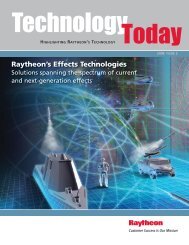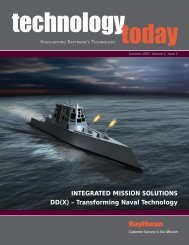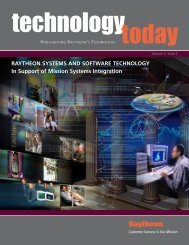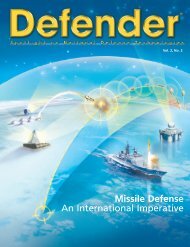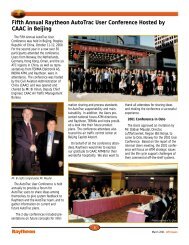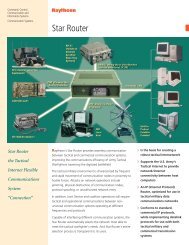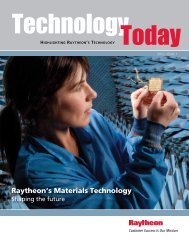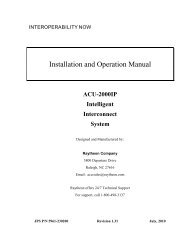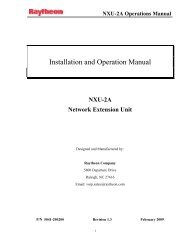Raytheon Company Public Key Infrastructure (PKI) Certificate Policy
Raytheon Company Public Key Infrastructure (PKI) Certificate Policy
Raytheon Company Public Key Infrastructure (PKI) Certificate Policy
You also want an ePaper? Increase the reach of your titles
YUMPU automatically turns print PDFs into web optimized ePapers that Google loves.
6.2.4.3 CSA Private <strong>Key</strong> Backup<br />
If backed up, the CSA private signature keys shall be backed up under the same single or multiperson<br />
control as the signature key is invoked. A single backup copy of the signature key may<br />
be stored at or near the CSA location. A second backup copy may be kept at the CSA backup<br />
location. Procedures for CSA private signature key backup shall be included in the appropriate<br />
CPS.<br />
6.2.5 Private <strong>Key</strong> Archival<br />
Private signature keys shall not be archived by the CA.<br />
6.2.6 Private <strong>Key</strong> Transfer into or from a Cryptographic Module<br />
CA and CSA private keys shall be generated by and remain in a cryptographic module. The CA<br />
and CSA private keys may be backed up in accordance with Section 6.2.4.1.<br />
6.2.7 Private <strong>Key</strong> Storage on Cryptographic Module<br />
The cryptographic module may store Private <strong>Key</strong>s in any form as long as the keys are not<br />
accessible without authentication mechanism that is in compliance with FIPS 140-1/2 rating of<br />
the cryptographic module.<br />
6.2.8 Method of Activating Private <strong>Key</strong><br />
The user must be authenticated to the cryptographic module before the activation of any private<br />
key(s). Acceptable means of authentication include but are not limited to pass-phrases, PINs or<br />
biometrics. Entry of activation data shall be protected from disclosure (i.e., the data should not<br />
be displayed while it is entered).<br />
6.2.9 Methods of Deactivating Private <strong>Key</strong><br />
The cryptographic modules that have been activated shall not be left unattended or otherwise<br />
available to unauthorized access. After use, the cryptographic module shall be deactivated,<br />
e.g., via a manual logout procedure, or automatically after a period of inactivity as defined in the<br />
applicable CPS. Hardware cryptographic modules shall be removed and stored in a secure<br />
container when not in use.<br />
6.2.10 Method of Destroying Private <strong>Key</strong><br />
Private signature keys shall be destroyed when they are no longer needed, or when the<br />
certificates to which they correspond expire or are revoked. For software cryptographic<br />
modules, this can be overwriting the data. For hardware cryptographic modules, this will likely<br />
be executing a “zeroize” command. Physical destruction of hardware should not be required.<br />
6.2.11 Cryptographic Module Rating<br />
See Section 6.2.1.<br />
64 7/25/2011



